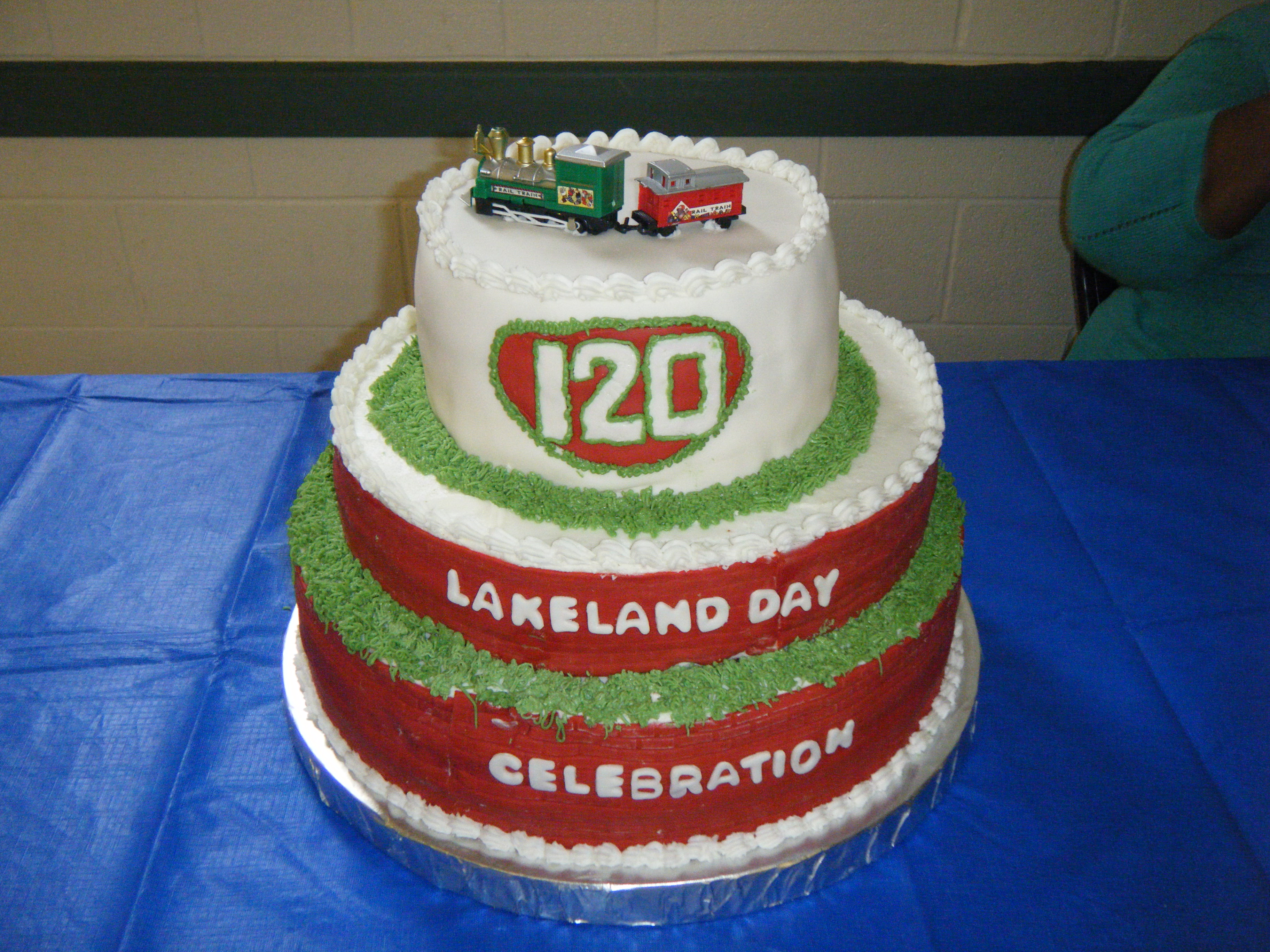
Celebration Cake
By Willie Sellers Jr in honor of Lakeland Heritage Weekend 2010

By Willie Sellers Jr in honor of Lakeland Heritage Weekend 2010
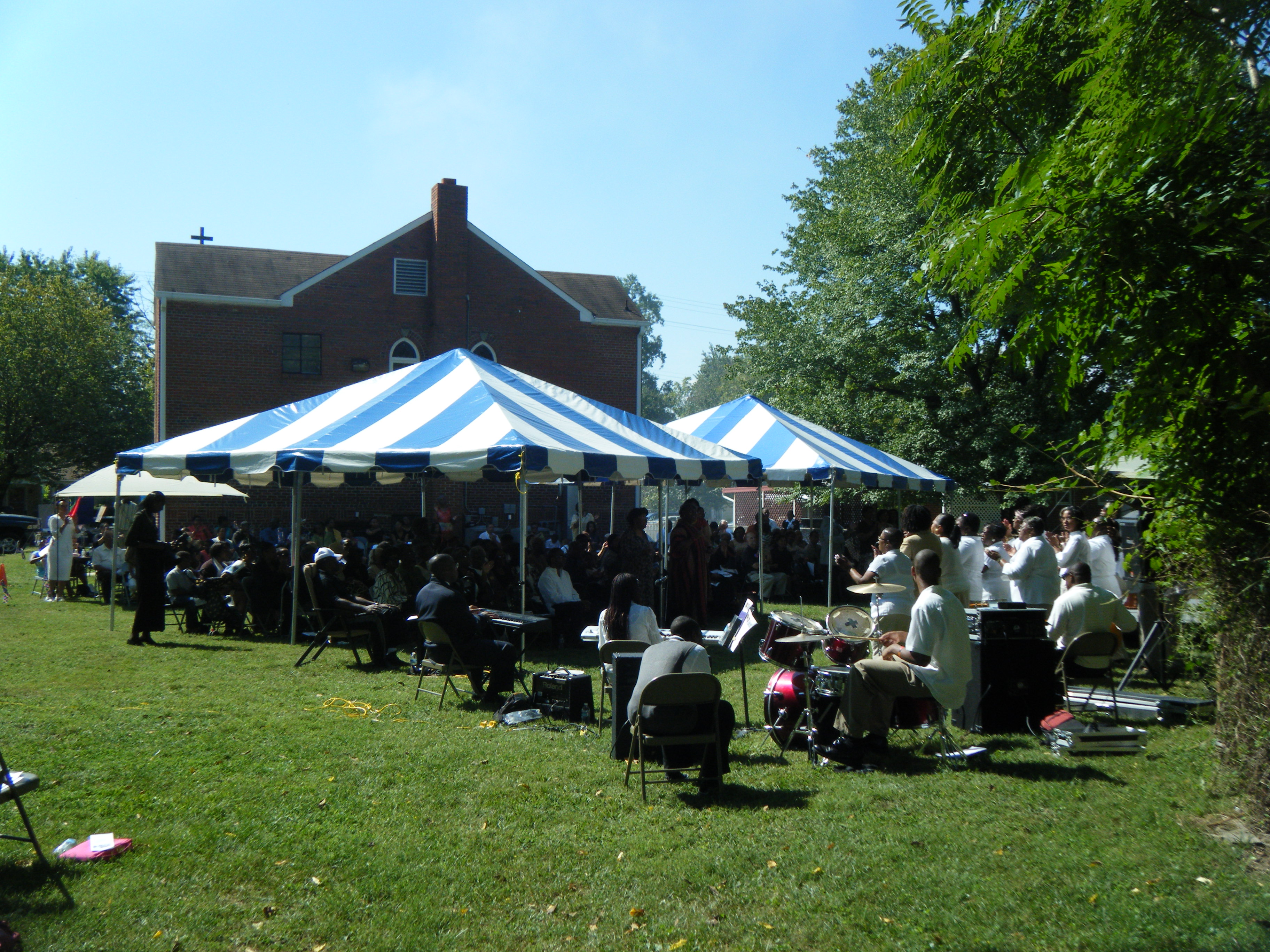
At First Baptist Church of College Park

During Lakeland Heritage Weekend Parade
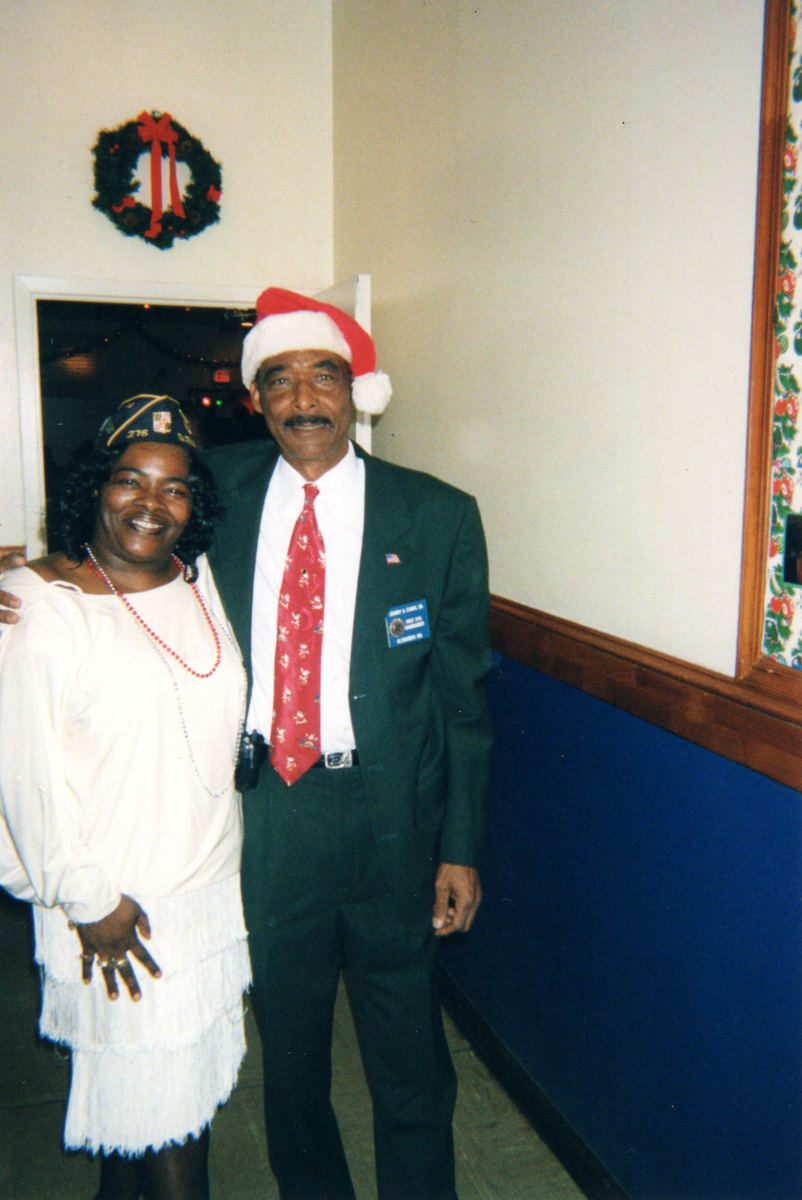
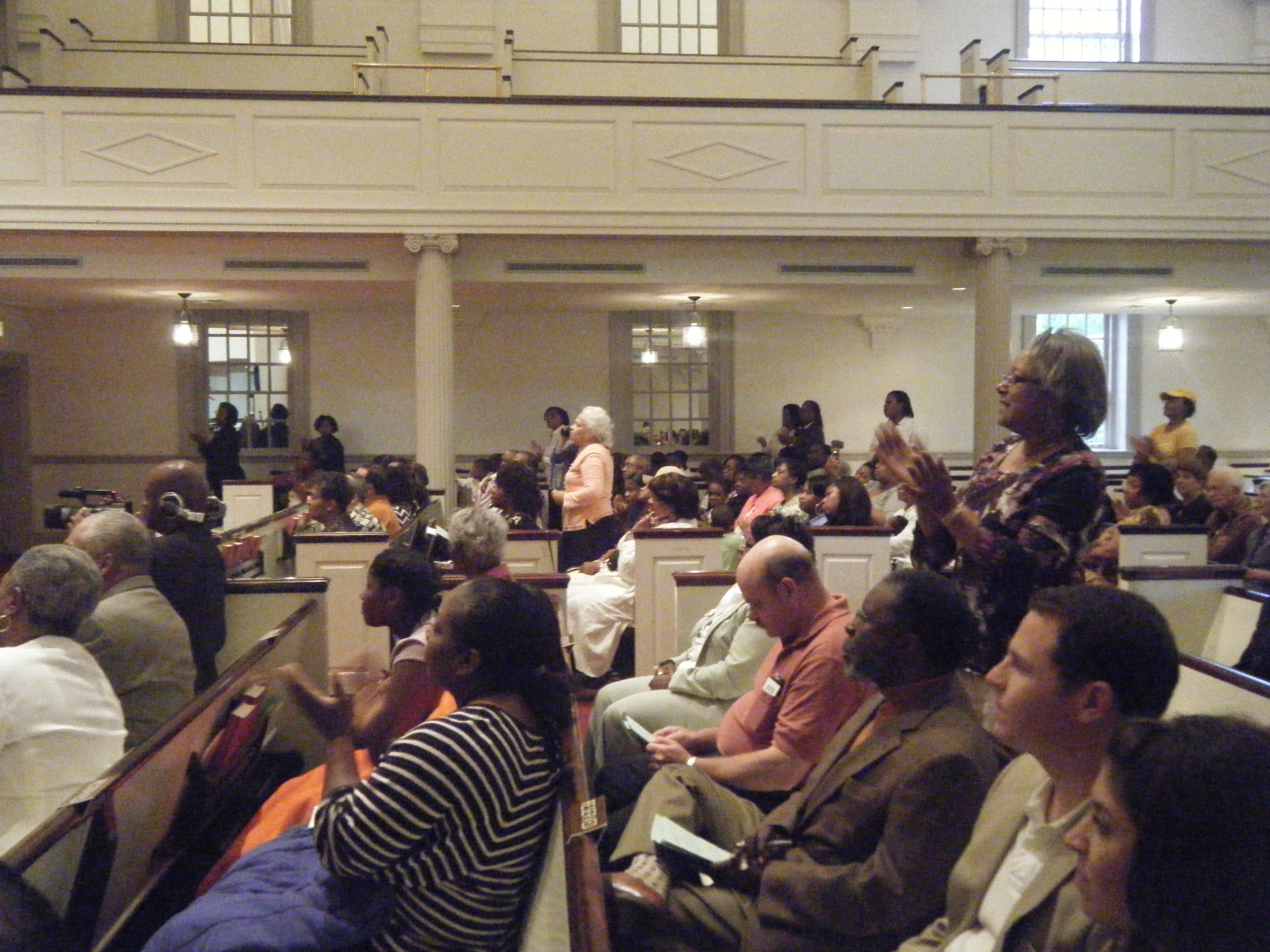
For Lakeland Community Heritage Project at University of Maryland's Memorial Chapel
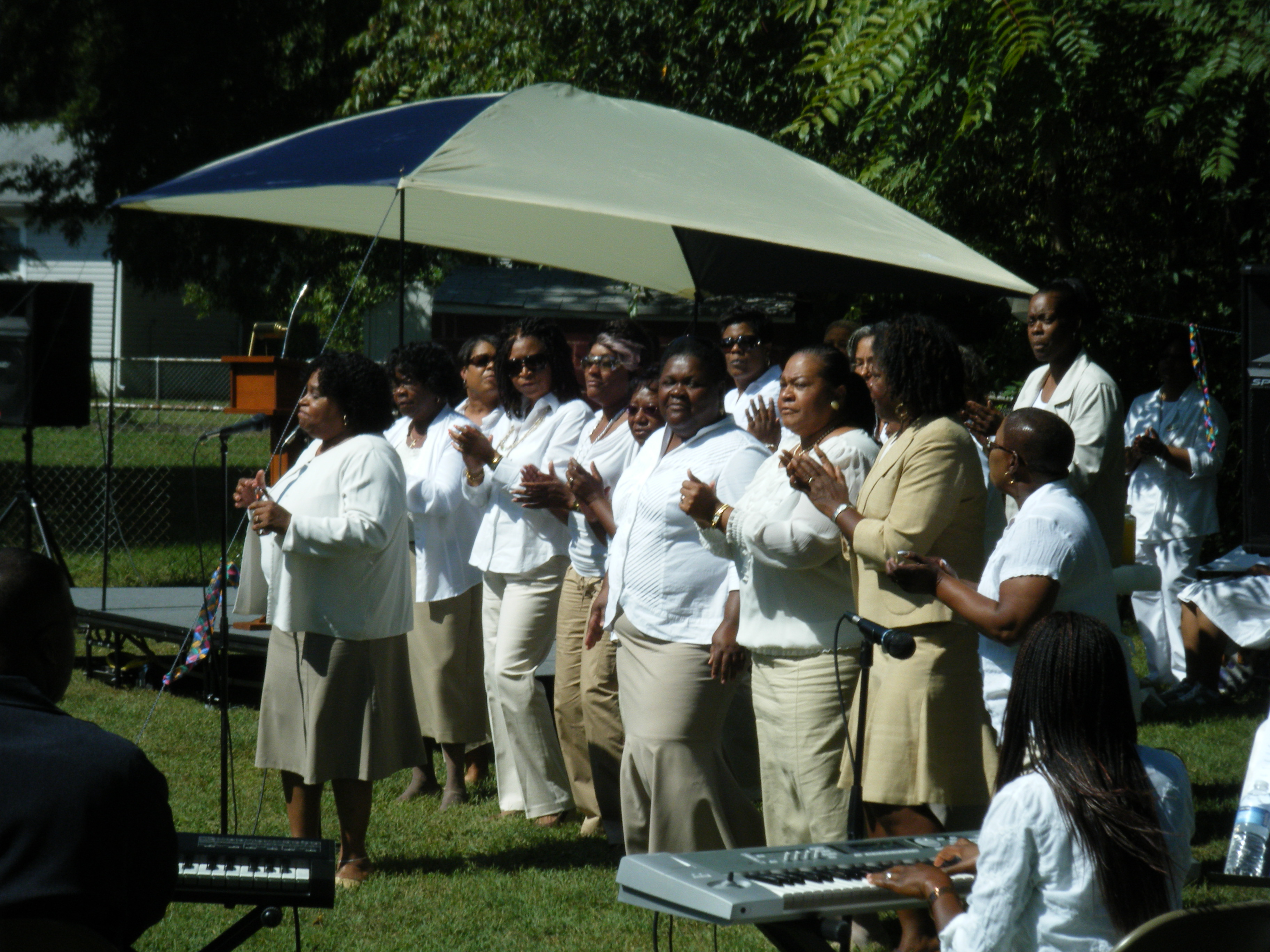
Participating in community worship service on grounds of First Baptist Church on Sunday morning during Lakeland Heritage Weekend
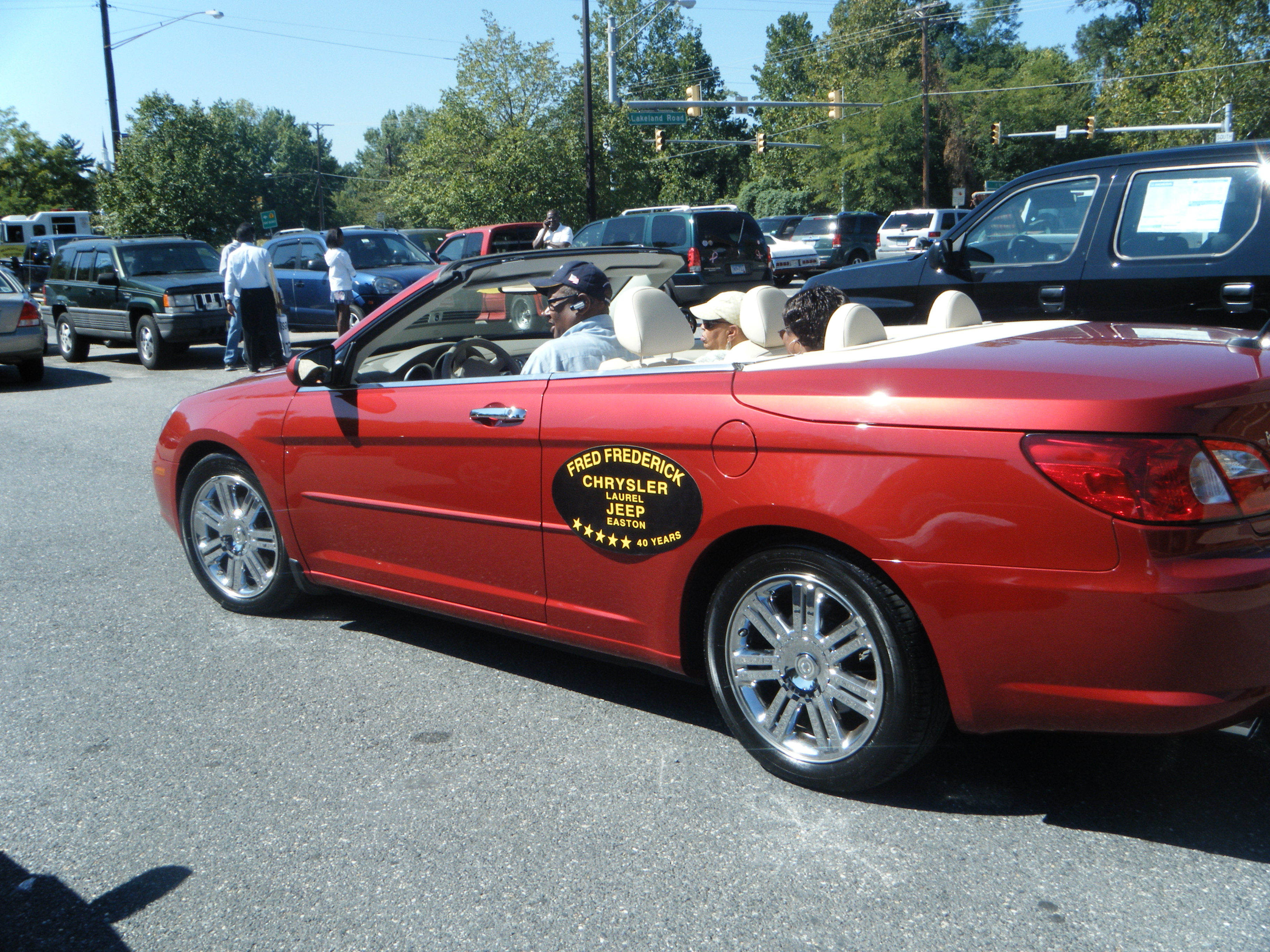
Heritage Saturday Parade

On the grounds of First Baptist Church
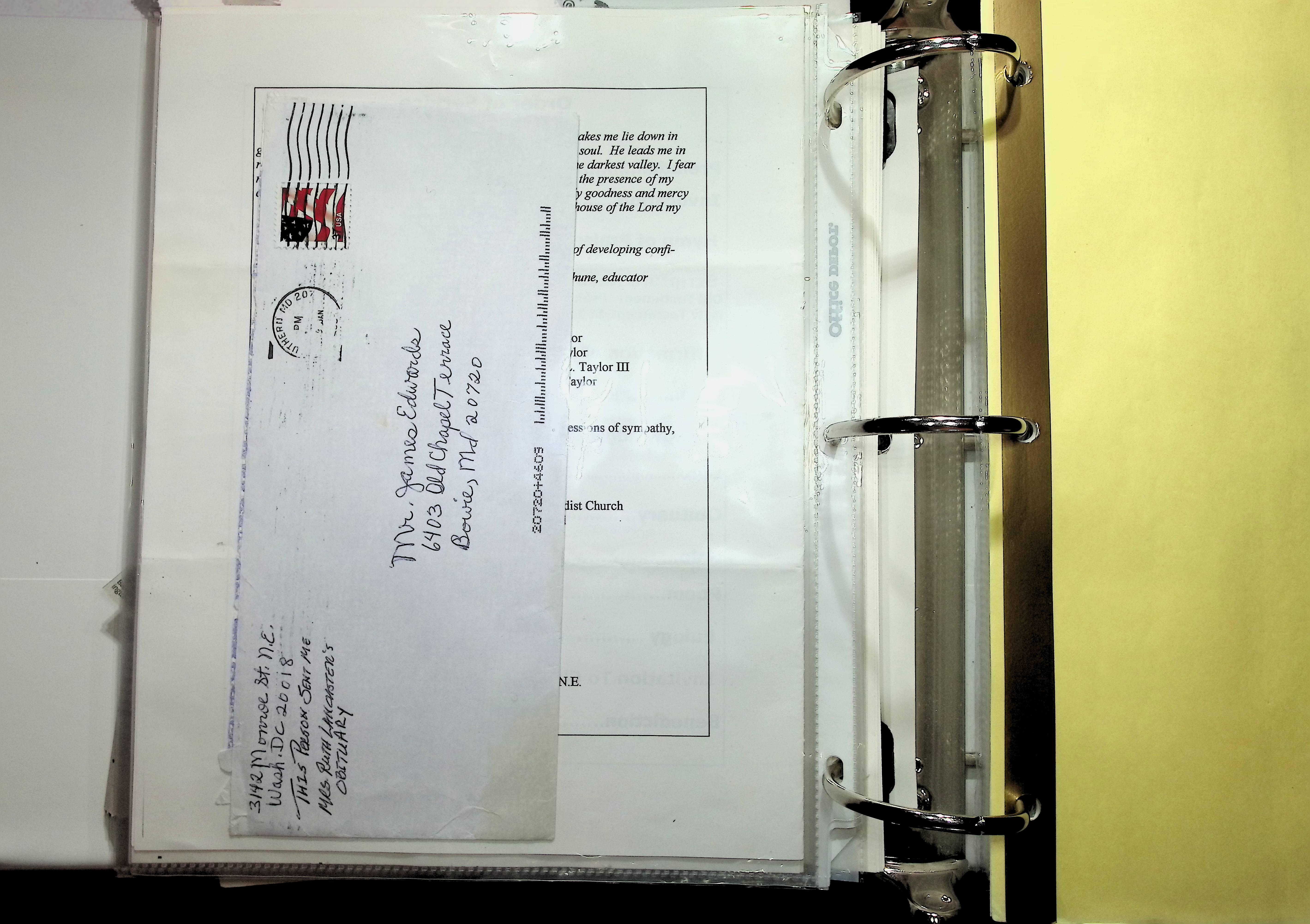
During Concert at University of Maryland's Memorial Chapel. Event was a program of Lakeland Community Heritage Project

on grounds of First Baptist Church
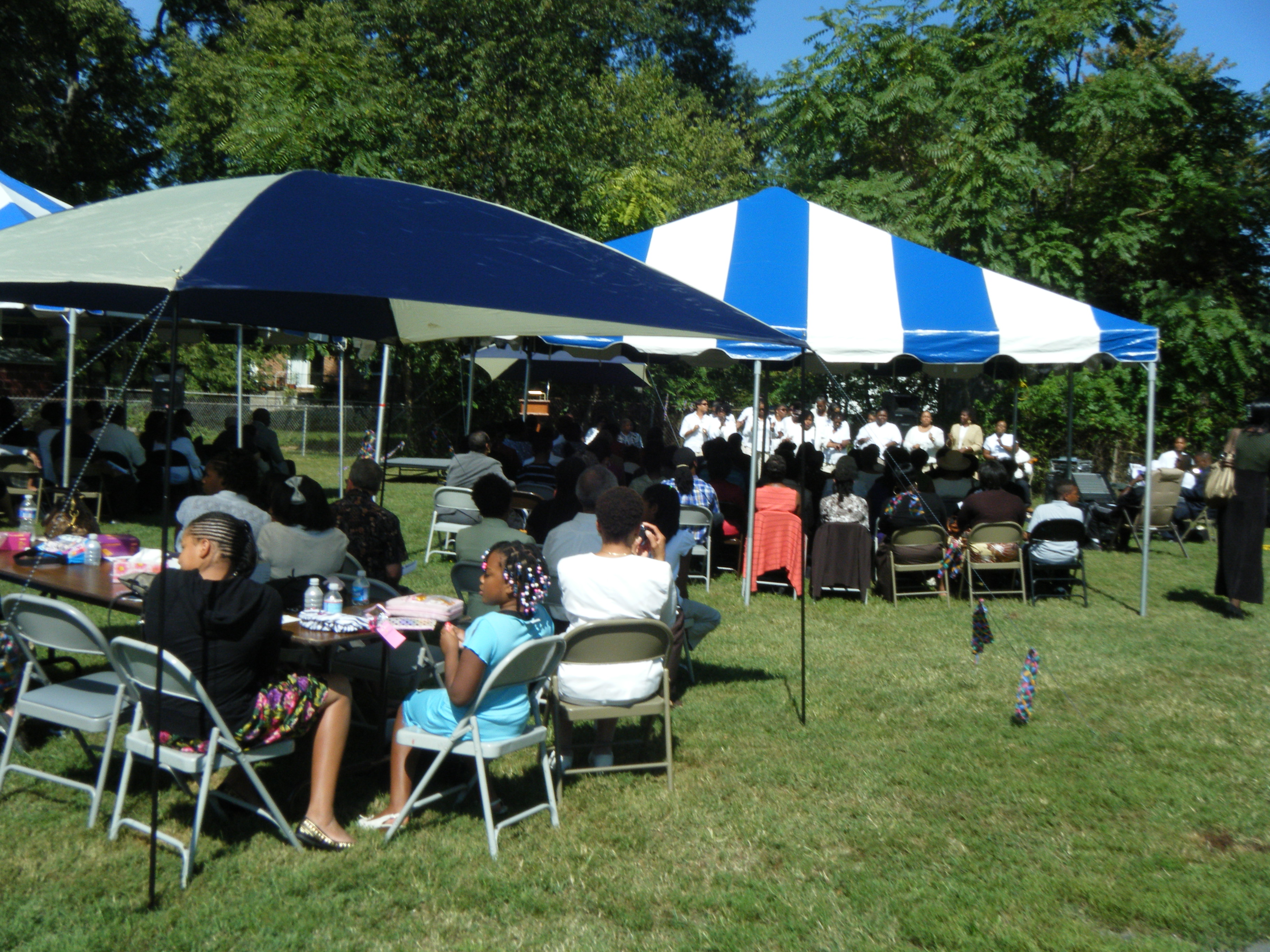
Heritage Weekend on the grounds of First Baptist Church of College Park during a song presented by Voices of Embry from Embry AME Church
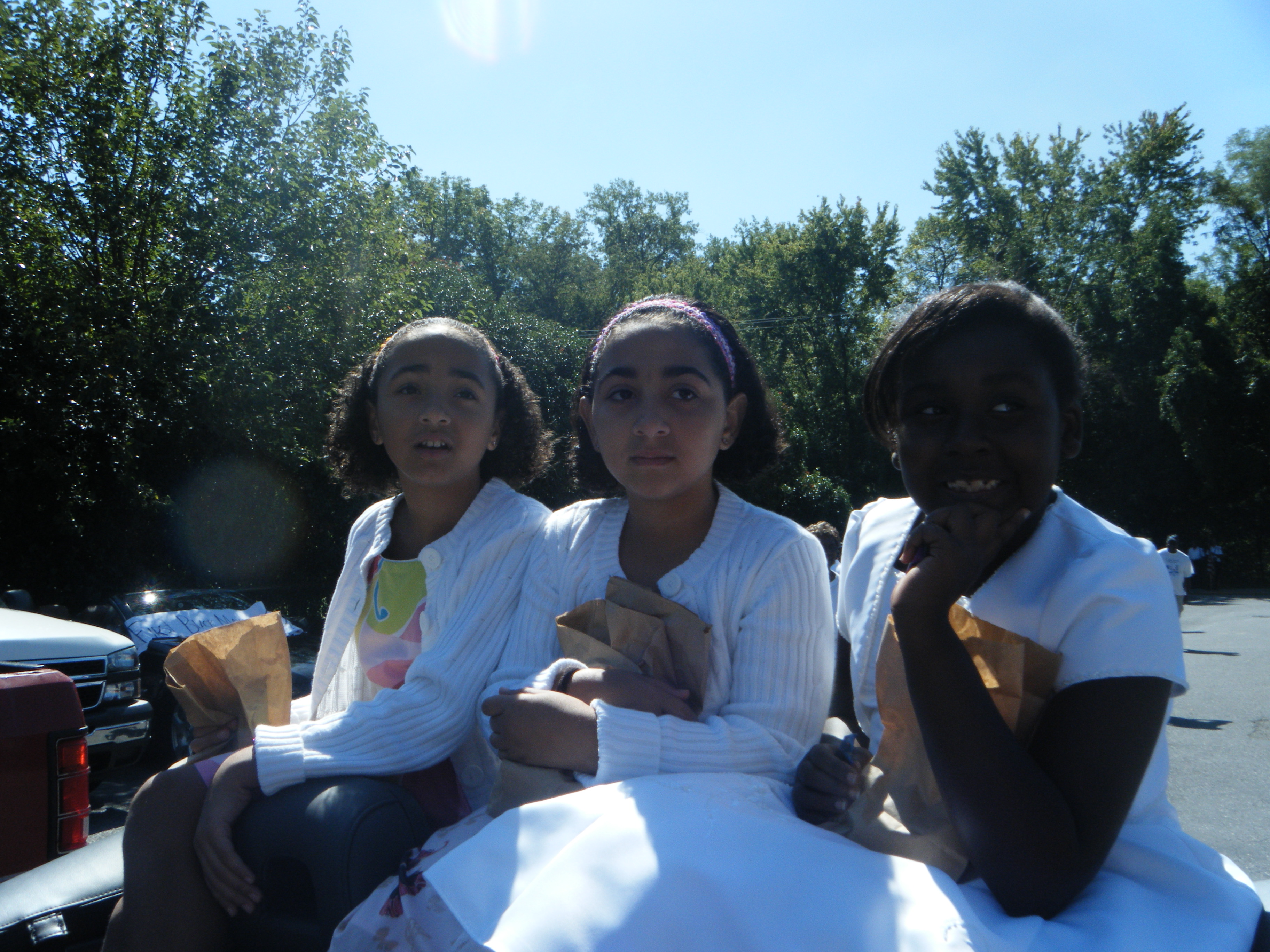
Alejandra and Katarina Melnyk and Abigail Cohen ride in parade during Heritage Weekend in Lakeland
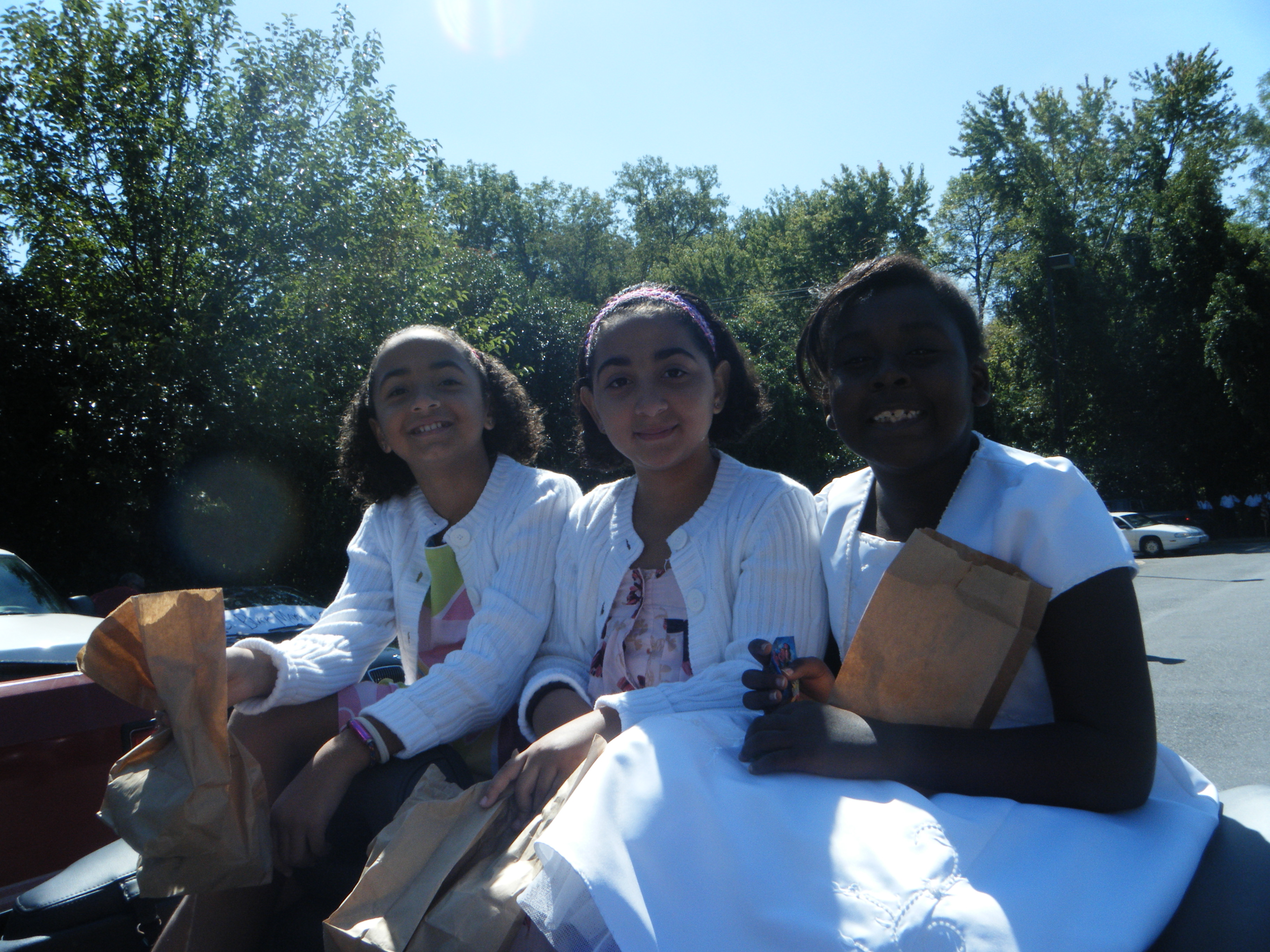
Melnyk sisters joined Abigail Cohen to ride in open car during parade held as part of Lakeland Heritage Weekend
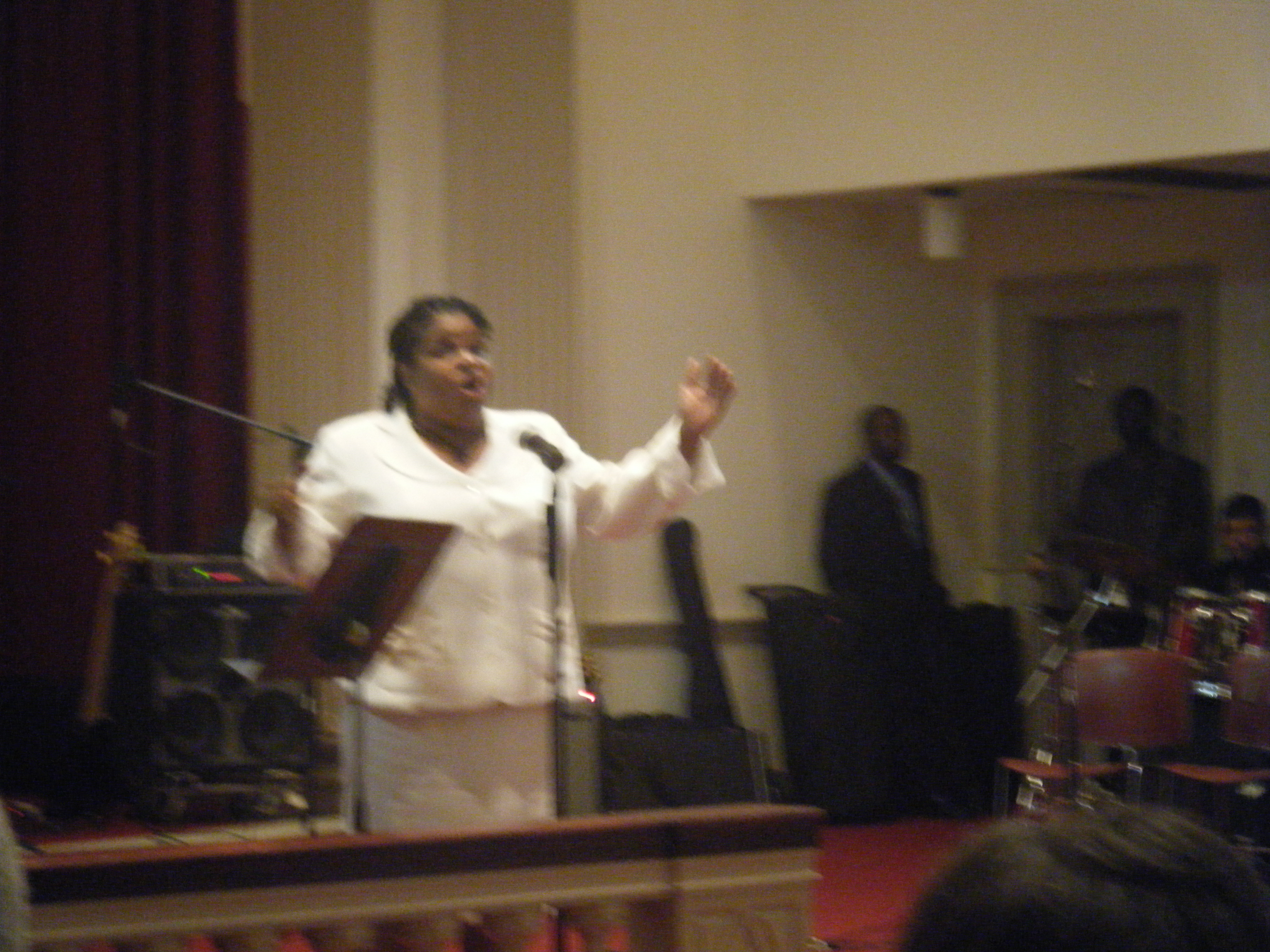
In performance at University of Maryland's Memorial Chapel during concert sponsored by Lakeland Community Heritage Project
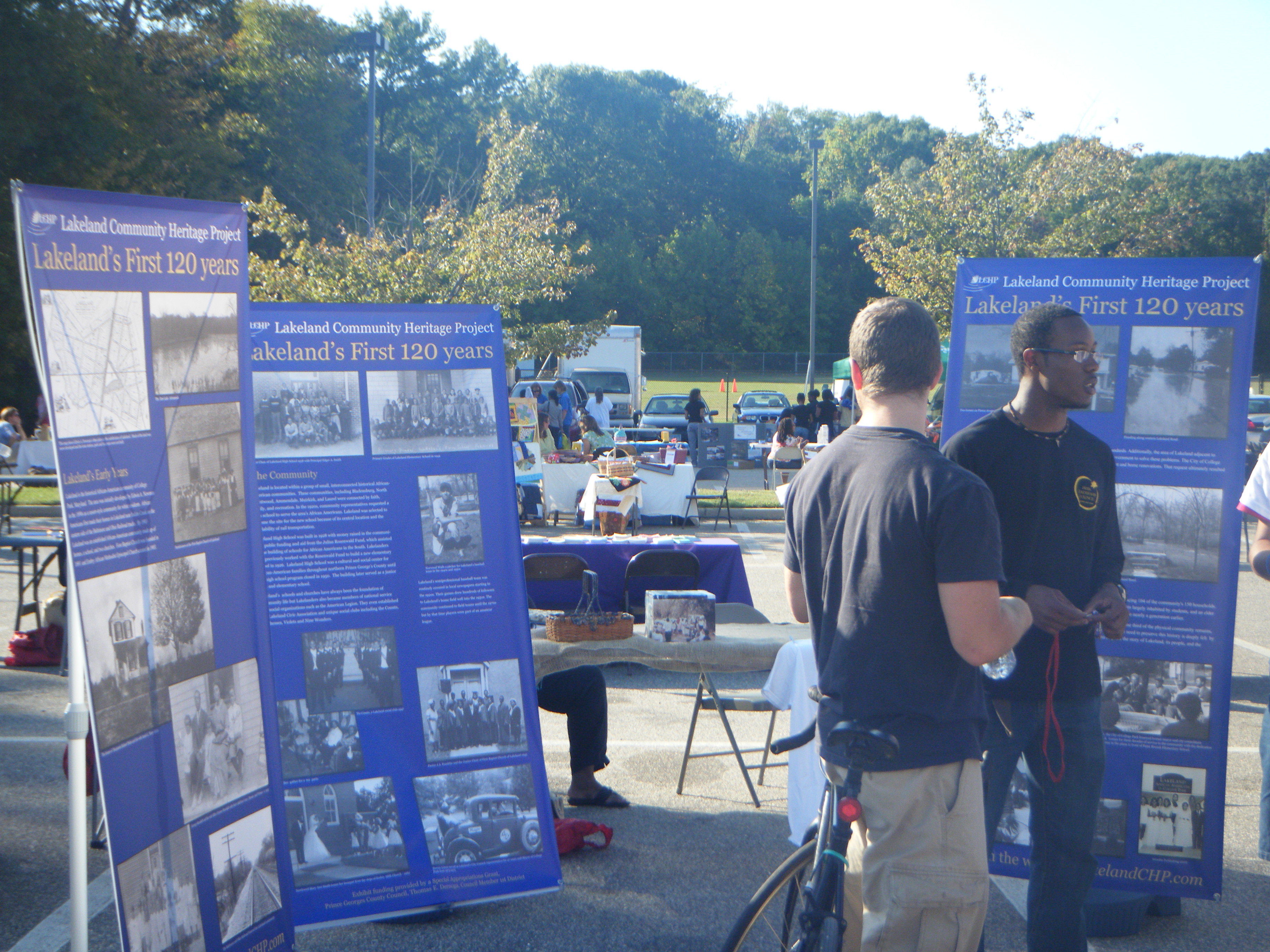
At College Park Community Center
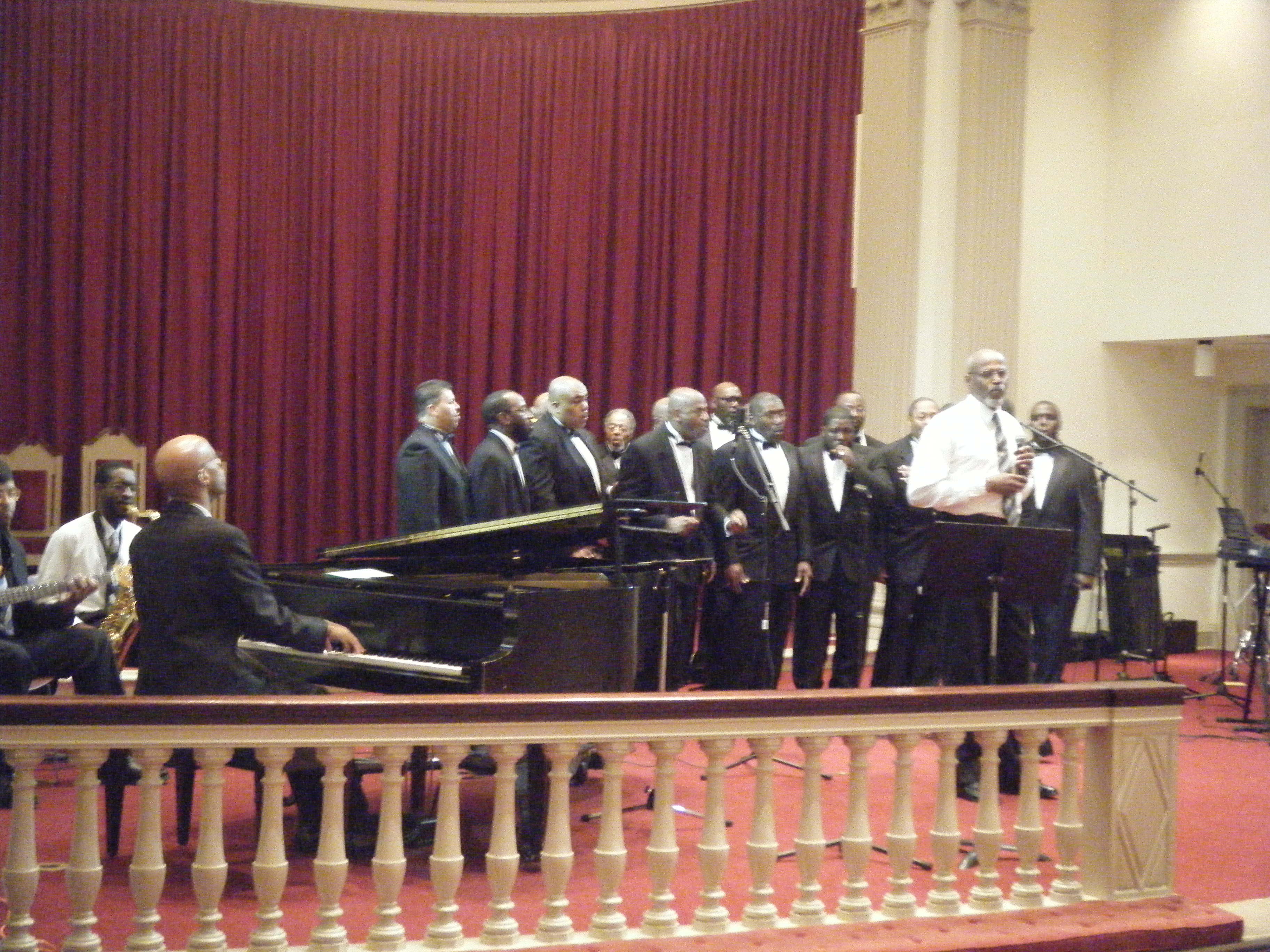
Queens Chapel Male Chorus in concert during event sponsored by Lakeland Community Heritage Project at Memorial Chapel on University of Maryland Campus

Delarace Dory on the porch of his Navahoe Street Home

Delarace Dory birthday celebration for 89th year. The group greeted Mr. Dory as he was seated on the porch of his home.

Ethel Dory and her brothers Elsworth and Edward during the celebration of the 89th birthday of Delarce Dory at Embry AME Church. After greeting Mr. Dory at his home the group moved to Embry Church for a meal.
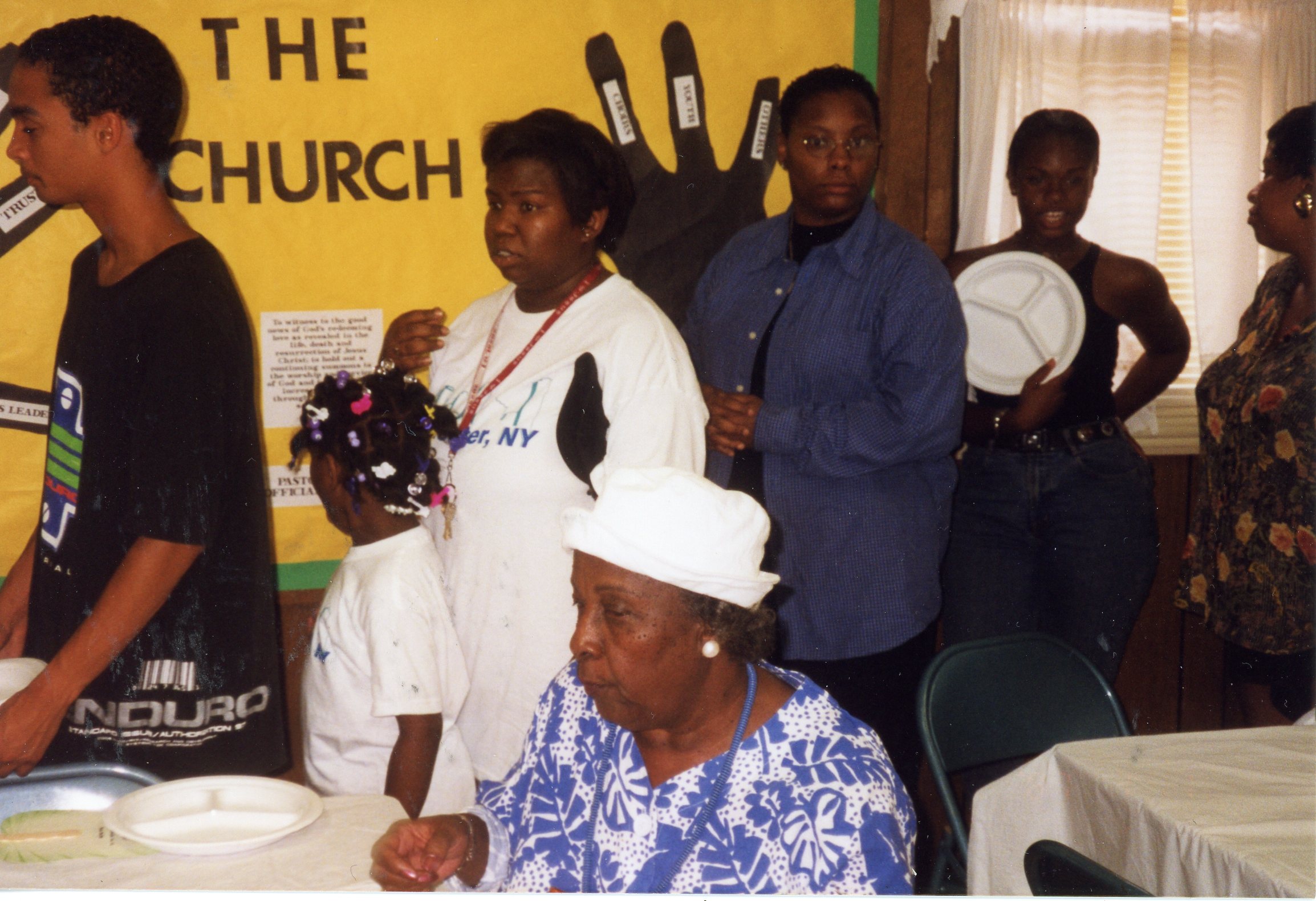
Shirley Anderson is seen in a white hat and Kim Lockerman is to the rear wearing a white tee shirt. Picture taken during the meal celebrating the 89th birthday of Delarce Dory at Embry AME Church parish hall.
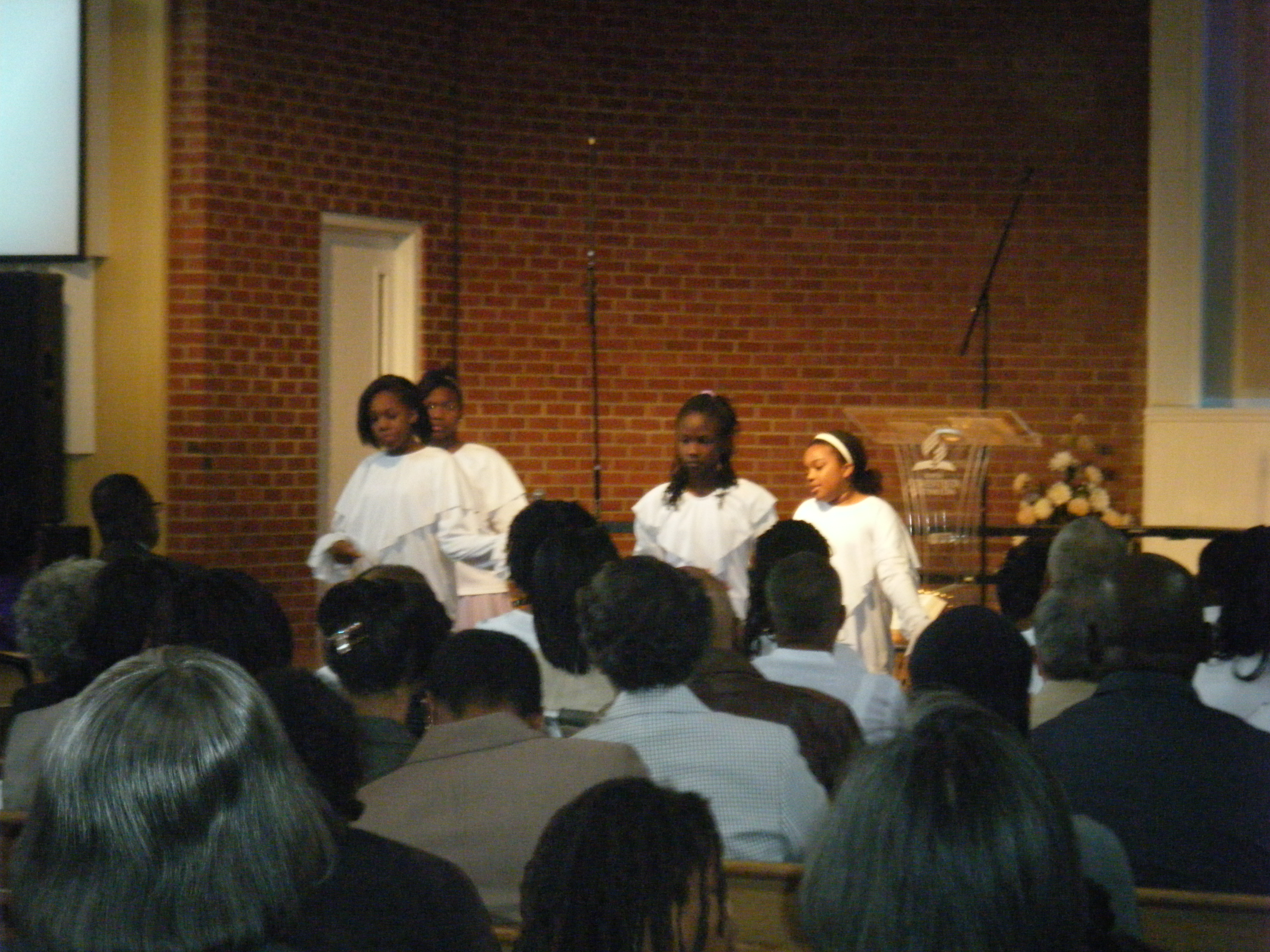
Dance group from First Baptist Church of College Park
Oral History of Mrs. Diane Weems Ligon, completed at her home on April 23, 2011. Mrs. Ligon discusses her family's connection to Lakeland, as one of the founding families. She describes how her grandparents and parents met and what they did for a living. Her parents were both civil servants, her father working in the District of Columbia, and her mother at Fort Meade in Columbia, MD. She discusses her siblings, a brother and sister, and her own experience being born and growing up in Lakeland. She describes the different schools she attended, Lakeland Elementary, Fairmount Heights High School, Howard University, and New York University. Ms. Ligon attended segregated schools throughout her education, until she reached graduate school at NYU. She discusses the effects of attending segregated schools, including the lack of material resources for African-American schools, the exceptional quality of teachers in those schools, favorite teachers, and after school activities. She also speaks about Prince George's County's resistance to integration, and the effects segregation had on her life as she experienced it both in the county, in the District of Columbia, and through discussions with her parents in her home. She explains the unity of the community of Lakeland with the surrounding African American communities and how Lakeland was the choice location for the high school because of its position in the middle of the Route 1 corridor. Mrs. Ligon discusses a trip she took after sophomore year in college to India, which was the first time she lived with people who practiced religions other than Christianity, which was an eye opening experience. She later explains how the trip to India helped her transition to graduate school, where again, she was living with people from different cultures and religions. Until graduate school she attended mainly all African-American institutions, and outside of the trip to India, had never lived outside of Lakeland. She describes leaving graduate school early to pursue a career in social work, a career choice she attributes to her rearing in Lakeland. She remained in New York City for fifteen years before returning to Lakeland with her daughter. Upon returning to Lakeland she worked for the District of Columbia government, and then for the Prince George's County Health Department, where she currently still works part-time after coming out of retirement. She describes the difference in her education and the education of her daughter in Prince George's County in the 1980s, not only the different between segregation and integration, but the quality of the education her daughter received. She also describes the Urban Renewal project in the community, and her perspective as someone who was not in the community when the redevelopment happened and as someone whose family was not displaced. She said the redevelopment had both good and negative impacts on the community, and how though her family wasn't negatively impacted, she understand why some families were and are so upset about the project. She briefly discusses the impact of having the University of Maryland as a neighbor to the community. She explains it was a place for employment, but it was also a constant reminder during segregation of where African Americans couldn't attend. Throughout the interview Mrs. Ligon discusses the small community experience for African Americans, their sense of place, self, and rootedness. She explains that Lakeland's story is part of a larger narrative for African American history, and that the history of Lakeland is probably similar to many of these small communities. She also disputes the idea of education as a way out explaining that education was not necessarily a way out, but a way for people to achieve more, and have more opportunities for work.
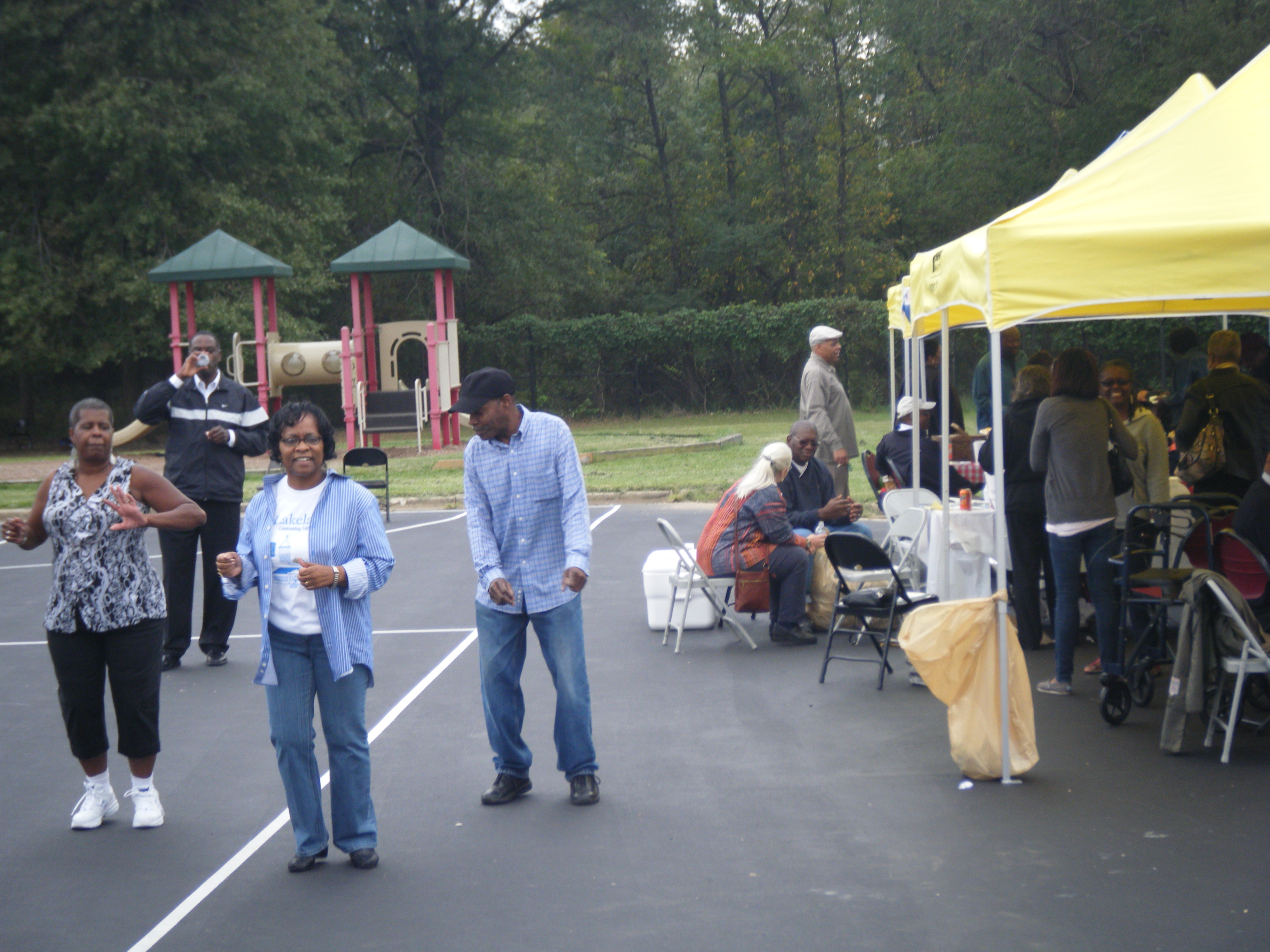
Saturday at College Park Community Center during Heritage Weekend
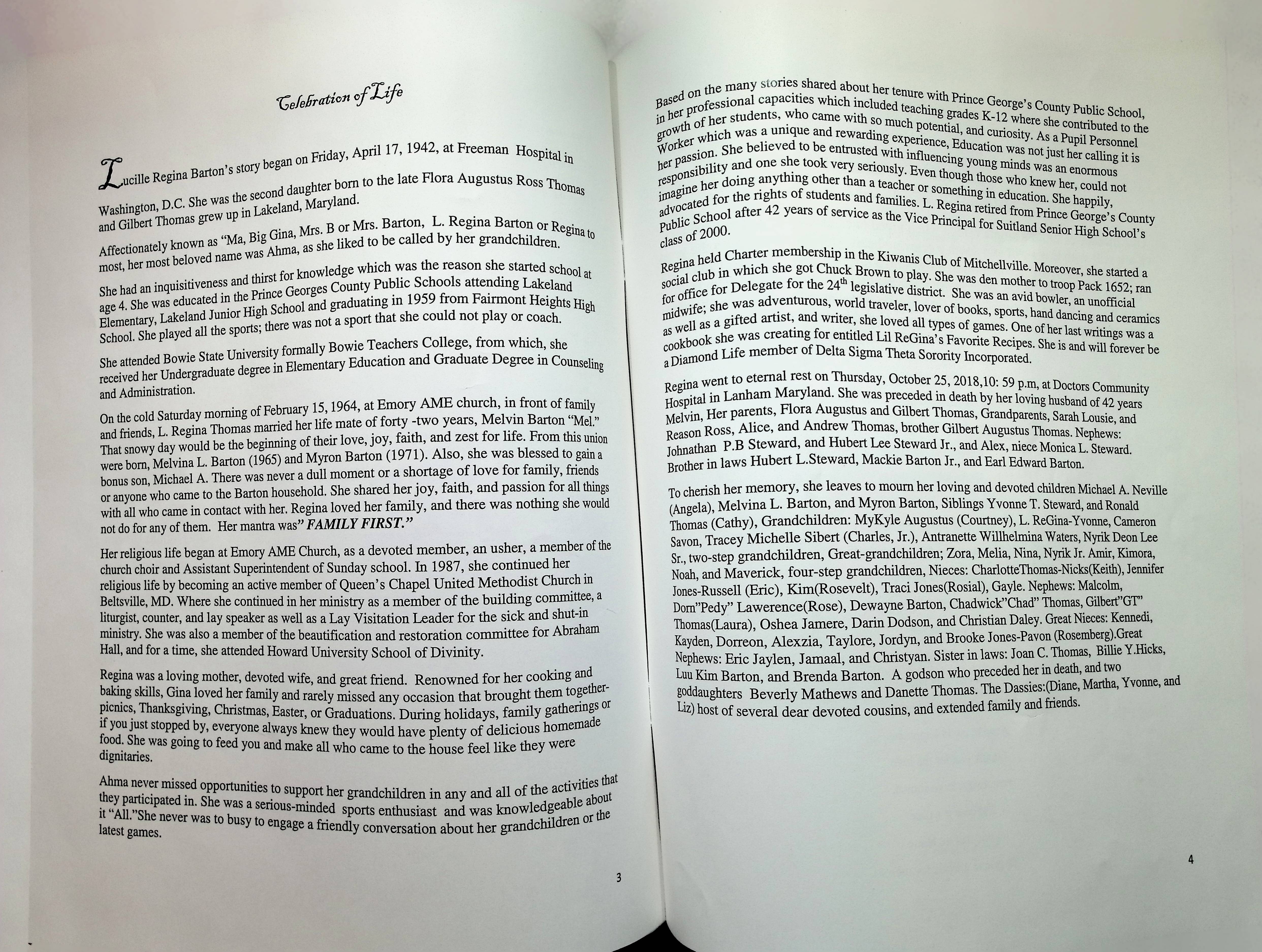
At Washington Brazilian SDA Church in Lakeland High School site
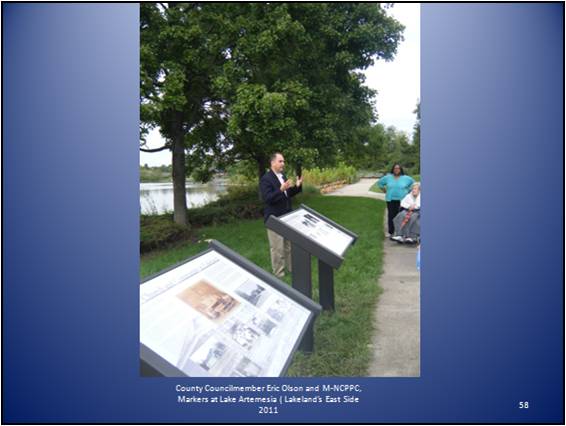
Unveiling of interpretive panels on Lakeland at Lake Artemisia Natural Area (site of eastern Lakeland)
Recorded during Lakeland Storytellers, Maryland Day, at Cole Fieldhouse at University of Maryland

Sermon during Sunday service of Heritage Weekend held at Lakeland High School site
This interview was conducted with Gela Sandage Brooks on April 27, 2011 at her home in Upper Marlboro, MD. Ms. Brooks discusses her time as a student at Lakeland School, Greenbelt Jr. High, High Point High School, and the University of Maryland. Ms. Brooks also talks about being a teacher at Lakeland Elementary and Paint Branch Elementary.

At Washington Brazilian SDA Church site of Lakeland High School

During Heritage Weekend at College Park Community Center
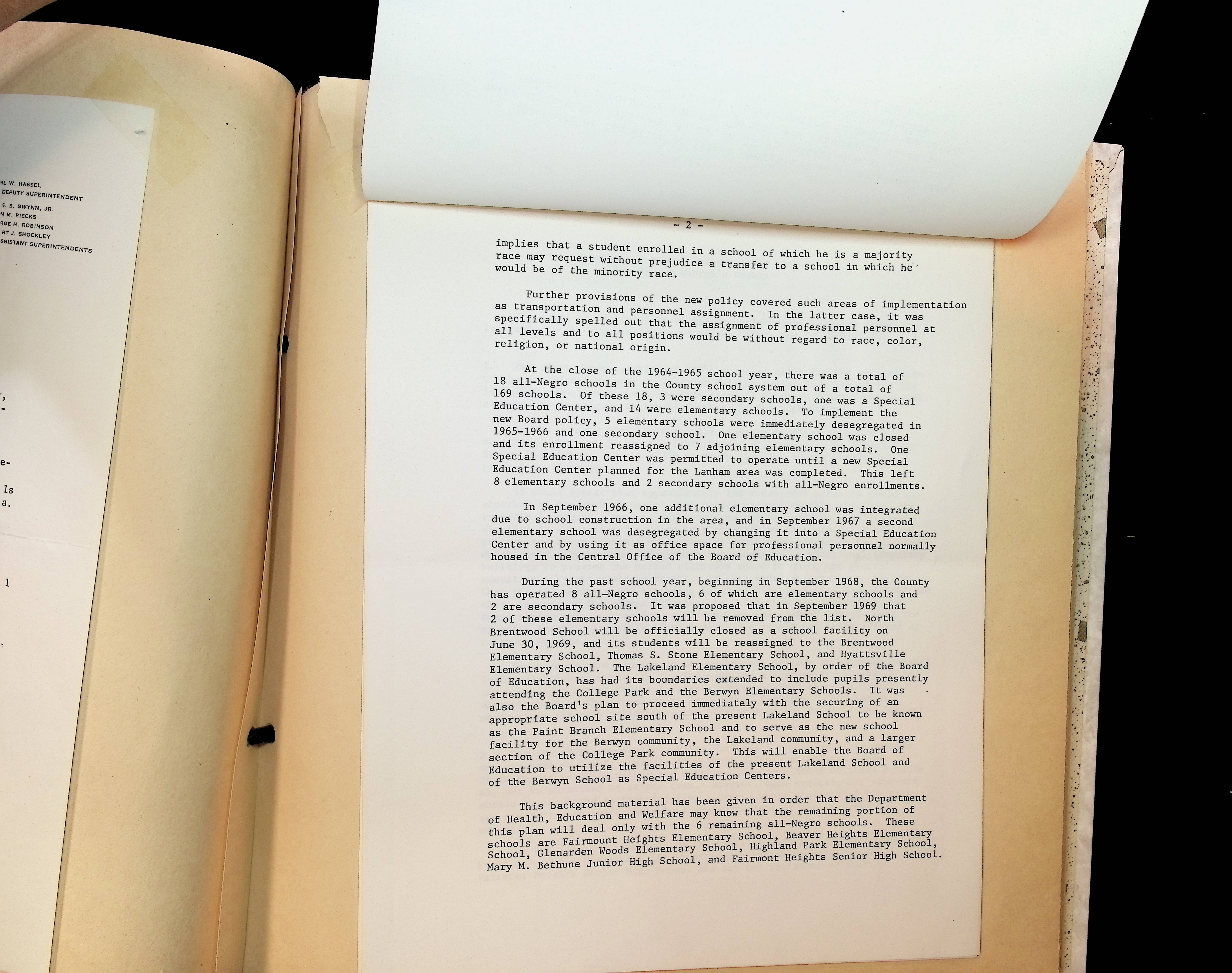
Washington Brazilian SDA Church at Lakeland High School site
Mr. Arthur Dock was born and raised in North Brentwood, Maryland. His father was a sand and gravel employee, and his mother, who worked as a domestic, passed away when Mr. Dock was a young boy. His aunt helped to raise Arthur and his three siblings. Mr. Dock recalls that North Brentwood, where he attended elementary school in the 1940’s, was a close-knit African-American community where everyone was concerned about the educational and social well-being of the children. The schools and churches played a large role in safeguarding the security and well-being of the community. He describes some experiences of attending a segregated school, including how teachers were short of supplies and what books they had were handed down from white schools (usually Mt. Rainier or Hyattsville.) Mr. Dock attended Lakeland High School from 1946-1950, and was part of the last graduating class of Lakeland High School. Like other African American students in Prince George's County, he rode the bus to Lakeland. Again, he recalls the second-hand materials that the school received, but fondly remembers the quality education he received there. Mr. Dock feels strongly that the teachers made an exceptional educational experience for the students, preparing them for a life and career in the segregated world. One important lesson he recalls is that African American students were taught to speak well, use appropriate English, be on time, and look decent. Mr. Dock formed a close bond with one teacher - Mrs. Walker and speculates that she took special care of him because his mother had passed when he was young. He stayed in touch with Mrs. Walker until her death in the mid-2000’s. This serves as one example of how the teachers in Lakeland wove themselves into the fabric of the community, taking the time to visit students at home, serving as mentors and role models. Most of Mr. Dock's reminiscences center around his conviction that folk made the school“ especially the teachers. It is not surprising, then, that Mr. Dock went to Bowie University, after graduating Lakeland High School in 1950, to become a teacher. His experiences at Bowie cemented the idea that education had a purpose and could be used to market yourself to the job market. After graduating Bowie University in 1954, and spending a two-year stint in the army, Mr. Dock began teaching in the Prince George's County school system, starting at a two-room school in Holly Grove, Maryland. But the segregated school system began to change, after the Brown vs Board of Education decision in 1954 forced an end to legal segregation. Mr. Dock seemed more affected by the fact that the integration of schools in Prince George's County caused competent black teachers to move to mostly-white schools, signaling an end to their effectiveness. Mr. Dock enjoyed teaching, especially science, and it is obvious that his teaching style was influenced by the education he had received in Lakeland, and that he attempted to replicate that experience for children during integration, a time of great social upheaval for adults and for children in Prince George's County. He was promoted from teacher to Helping Teacher (a quasi-supervisor for teachers) and then to Vice-Principal at Concord Elementary in District Heights. After two years of training, Mr. Dock became the principal of Ardenwood Elementary School, a country club school in the County. From there, he went to the decidedly less glamorous Bladensburg Elementary School, which he enjoyed immensely for about two years. He spent the rest of his career in a middle school implementation team position that he did not like, as it kept him out of the classroom and away from teaching children. Mr. Dock emphasizes that one of the major drawbacks of the integration process was that talented black teachers were sent to white schools, where they were not as appreciated and were decidedly less effective. He saw his role as trying to make the transition to integration smooth for the teachers and the students, implementing new teaching procedures and curriculum that seemed to replicate the educational experience of Lakeland and help the students to market themselves for the outside world. He also wanted to properly assign teachers to subjects where they had an expertise or strength. He pushed to instill discipline in the students and have the teachers set expectations, or benchmarks, in the learning process so that students could mark their progress. Finally, Mr. Dock emphasized the importance, at the time, of athletics in the schools, and how the students were able to travel around the county. Athletics became another field in which African-American students could achieve success in their segregated world. Recorded at Caroline Hall, University of Maryland College Park.
Recorded during Lakeland Storytellers, Maryland Day, at Cole Fieldhouse at University of Maryland
Maxine Gross, Diane Weems Ligon and Violetta Sharps Jones introduced Lakeland and its history to the Social and Ethnic Issues in Historic Preservation class on February 9, 2011. Recorded on the UMD campus.

Unveiling of historic site signs in Lake Artemisia Natural Area

Delivering sermon during Heritage Weekend Sunday Service at Washington Brazilian SDA Church, Lakeland High School site
A conversation with Violetta Sharps Jones on her experiences growing up and going to school in Lakeland during segregation. Quotes: "All of the teachers were amazing the teachers, at the Lakeland schools, made sure every student was educated." "I always appreciated the words of encouragement I got from neighbors." " The Lakeland community was close knit family." "Everyone in the Lakeland community knew and looked out for one another." "Even though Lakeland students faced segregation and desegregation, it never hindered their educational and family values." Recorded in Ms. Jones' home in Bowie, MD.
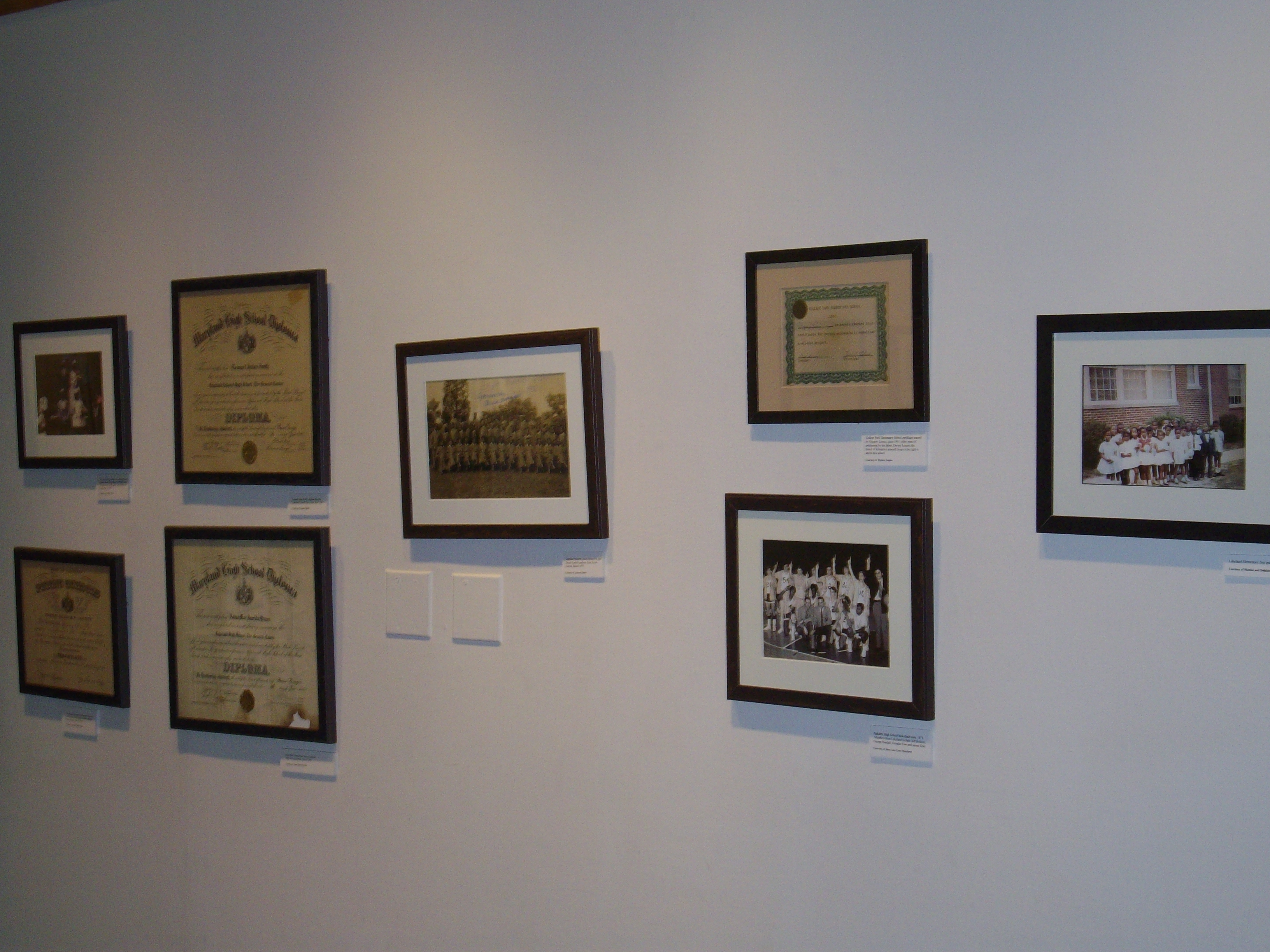
Lakeland Room at College Park Community Center

University of Maryland at Maryland Day in partnership with UMD American Studies Department with Dr. Mary Sies
A conversation with mother and daughter at their home in Lakeland, on their experiences with education and segregation while living in Lakeland. Themes and Quotes from the interview: "There is value in education and it was never an option to go to college, it was an expectation." Almost like home schooling~ Wilmer Gross "There was special care put into each student at Lakeland elementary school to ensure they had a strong understanding of the basics information needed to be successful in secondary school." "You would work and most likely for the University of Maryland"~ Delphine Gross Lakeland is related through blood, marriage, and church families~ Wilma Gross: Teachers would have their own children in their class, go to church with their students, and know their students extended families. Homecoming was a celebration held by the church and was seen as a family affair where the entire community would get together and reminisce. Students from Lakeland excelled in the classroom post desegregation and for this reason they were occasional the subject of bullying. Changes to the feeling of community after urban renewal. People grow up, getting married, and leave the community because there is limited housing. When outside families move into Lakeland, it is difficult to engage them in community activities.

Event at College Park Community Center
This is an interview conducted during Maryland Day, 2011, at Cole Fieldhouse. The interviewees answer questions on topics of sports in Lakeland, segregation outside of the community, bussing and integration of the school system, Lakeland's interaction with the University of Maryland, and raising children within the community.
Recorded during Lakeland Storytellers Maryland Day at Cole Fieldhouse at University of Maryland.
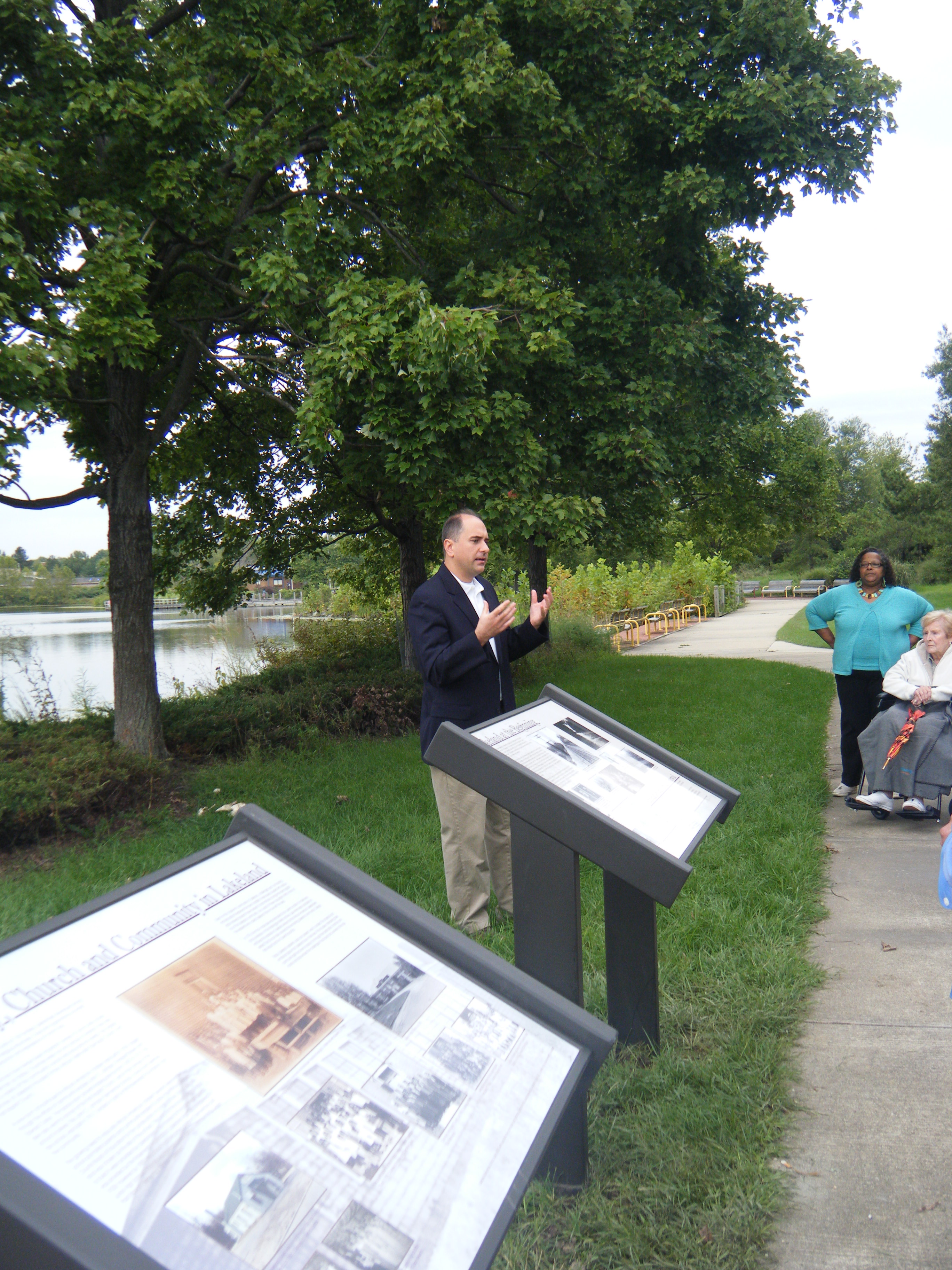
Unveiling of interpretive signs for the Lakeland community in Lake Artemisia Park the site of Lakeland's eastern section.
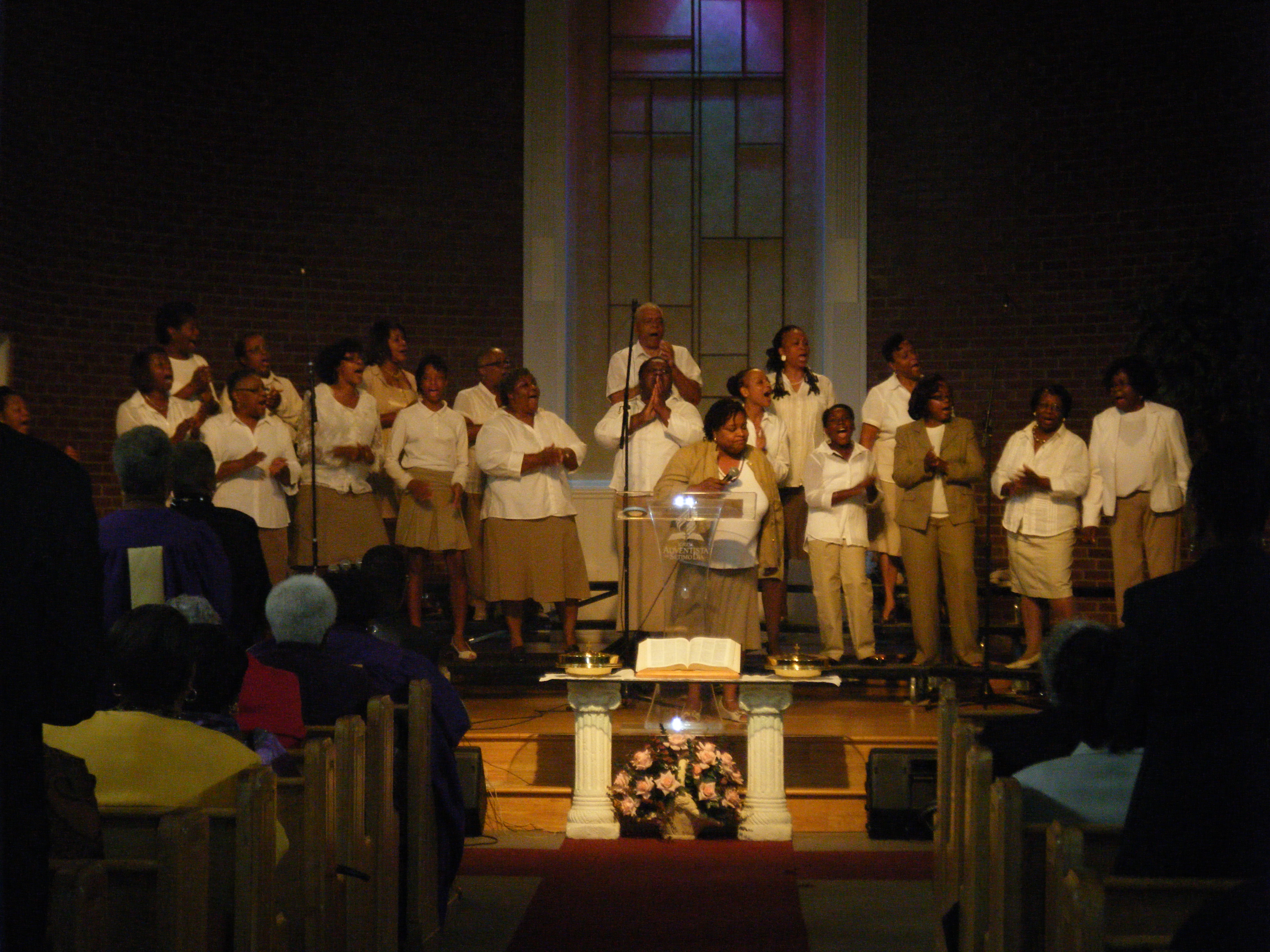
Embry Church Choir at Lakeland High School site during Sunday Service
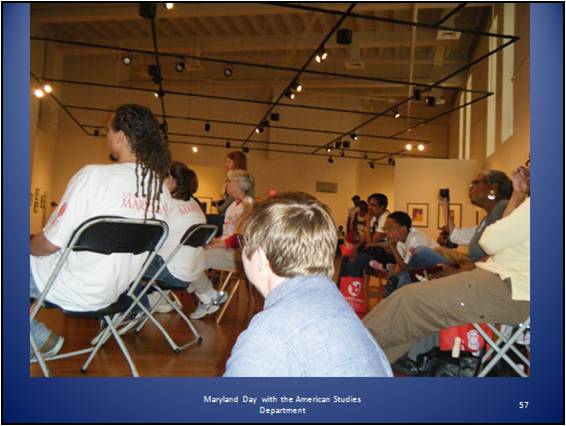
At University of Maryland
Recorded during Lakeland Storytellers Maryland Day 11-12, at Cole Fieldhouse at the University of Maryland.
This is an audio recording of an open panel discussion about Lakeland and the surrounding area's history of African American education, which allowed all participants to contribute when compelled. Participants included former residents of Lakeland and students of the Lakeland School, as well as students from the University of Maryland American Studies program under Dr. Mary C. Sies. Professor Sies introduced the focus of the 2011 project on education before the beginning of the discussion. The following dialogue included how education played an integral role in the Lakeland community. The participants discussed their experiences of going to grade school during times of segregation and then integration/desegregation.
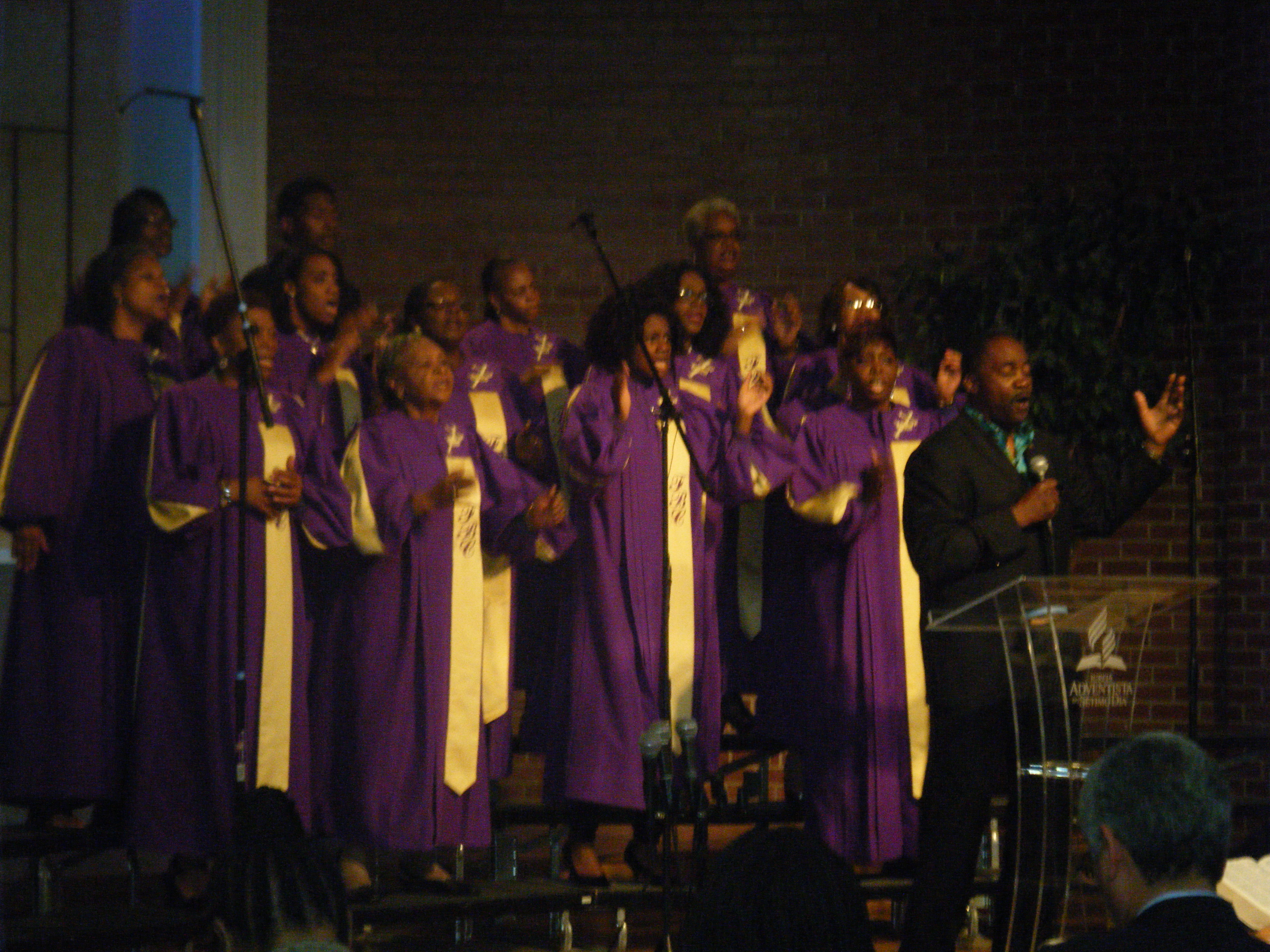
First Baptist Church Choir during Heritage Weekend Sunday service at Washington Brazilian SDA Church the site of Lakeland High School